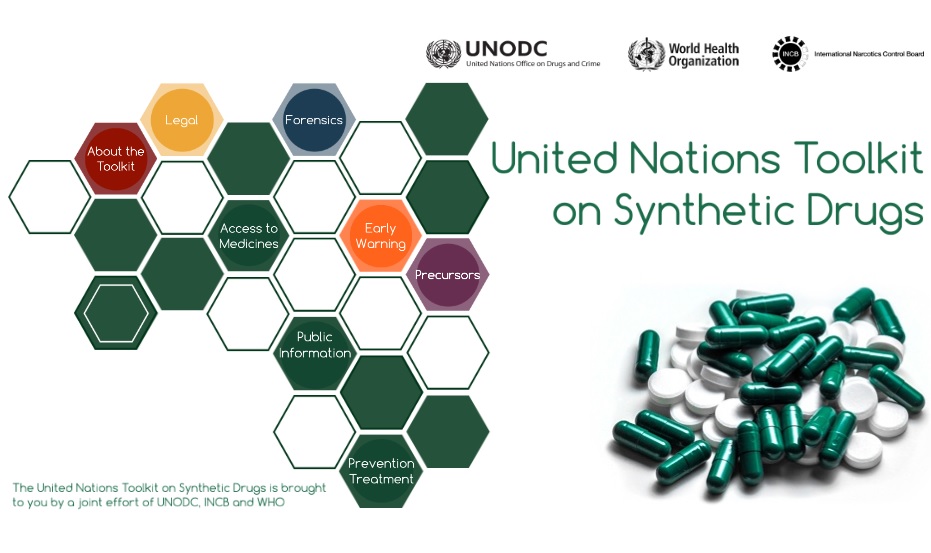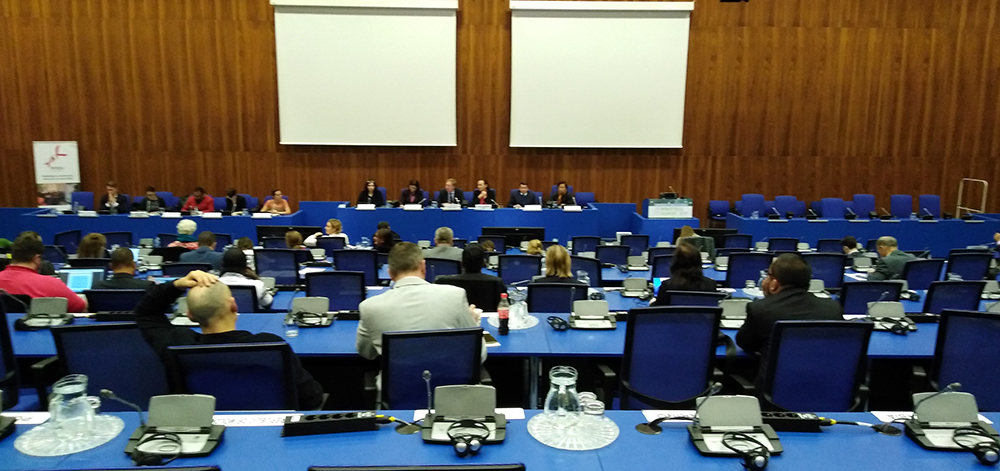NGO briefing by the Vienna NGO Committee
The briefing was a useful orientation, especially for the newcomers, to what will happen and the annual UN Commission on Narcotic Drugs and the role and involvement of civil society organisations.

Opening of the sixty-first CND Session
The opening session was held in plenary, with all national delegations and civil society representatives present and transmitted to other rooms. It included welcome messages of the CND 61 Chairperson Alicia Buenrostro Massieu, UN Secretary-General António Guterres, International Narcotics Control Board President Dr Viroj Sumyai, UNODC Executive Director Yuri Fedotov, WHO Director – General Tedros Adhanom Ghebreyesus and introductory speeches of country groupings: Group of 77 and China, Africa Group, Asia Pacific Group, Latin American and Caribbean Group (GRULAC) and European Union Group (including accession countries). The Session then continues with general debate.

It should me mentioned that Deputy Minister of Health of Bulgaria Svetlana Yordanova spoke on behalf of the European Union (Bulgaria holds presidency of the EU). She underlined that current UN Drugs Policy has been an utter failure and that EU expresses deepest regret that the UNGASS Outcome Document does not mention a moratorium on the death penalty. She said that “In 2009, we set 2019 as a target date for ourselves to eliminate cultivation of opium, coca and cannabis plants and social risks, trafficking and money laundering related to illicit drugs. We have not achieved this target: today we have an equally severe and diversified situation. The problems are evolving. We have never seen such a complex set of challenges in the drug area: NPS, the internet, trafficking, new players and increased production. EU supports bringing public health and human rights to the core of the drug policy by balancing law enforcement with equally firm health and social services and evidenced based actions.
Side events
Bringing human rights to the forefront of drug policy: Development, implementation, monitoring and evaluation
The event was organised by the governments of Malta (represented by Ambassador Keith Azzopardi), Germany (Ambassador Friedrich Dauble), Norway, the Pompidou Group of the Council of Europe (Jan Malinowski, Executive Secretary). Speakers were also Damon Barrett, Director of the International Centre on Human Rights and Drug Policy, University of Essex and Zaved Mahmoud, Office of the UN High Commissioner for Human Rights. This event was an attempt to move beyond highlighting human rights problems by examining the impact of the world drug problem on the enjoyment of human rights and exploring the application of human rights standards and tests as a basis for national and local led initiatives to incorporate human rights into drug policy development, monitoring and evaluation.

In the outcome document of the 2016 UNGASS on the world drug problem, UN member states reiterated a “commitment to respecting, protecting and promoting all human rights fundamental freedoms and the inherent dignity of all individuals and the rule of law in the development and implementation of drug policies”. In drug policy – as in all other policy areas – human rights are not a choice, they are an obligation.
Interesting points from the presentations include:
- Human rights start in small places, close to home – Eleanor Roosevelt
- Jan Malinowski: There is no discussion about death penalty and extrajudicial killings. CoE is condemning inhuman treatments. There must be mechanisms in place to bring to light rights issues arising from drug policy
- Damon Barrett: There is no universal prescription due to diversity in country situations, but we have universal standards! The challenge for policy makers is to resolve the tension between human rights and drug policy in favour of human rights. Health services should be available, accessible, acceptable (by different populations) and of sufficient quality. Consider harm reduction in funding decisions.
- Zaved Mahmood: Wrong policy decisions influence various segments of life. For instance, punishing legislation leads to overcrowded prisons. Until we address the human dimension of drug policies, those policies will fail.
The world drug perception problem
This event was organized by the Governments of Portugal, Switzerland and Uruguay and the Global Commission on Drug Policy to discuss the current perceptions but also progress already made in some countries to fight negative perceptions, stigma, discrimination and criminalization of people who use drugs, as well as possible further steps.
Speakers included Pavel Bém, Commissioner, Global Commission on Drug Policy (GCDP), Michel Kazatchkine, UN Special Envoy on HIV/AIDS for Eastern Europe and Central Asia, João Goulão, National Drug Coordinator, Portugal, Martín Rodríguez, Executive Director of the Institute for the Regulation and Control of Cannabis (IRCCA), Uruguay, Nora Kronig-Romero, Ambassador for Global Health, Switzerland and Judy Chang, Executive Director, INPUD.
The latest GCDP report on the issue The World Drug Perception Problem: Countering Prejudices About People Who Use Drugs was published in 2017.
Interesting points from the presentations include:
- Michel Kazatchkine: presented an interesting fact from the report that “UNODC estimates only 11.6% of those who used drugs in 2016 are considered to suffer problematic drug use or addiction. The most common pattern of drug use is episodic and non-problematic.” and that “Legal status of #drugs rarely correspond to potential harms, not based on scientific evidence.”
- Martín Rodriguez: “There have been no episodes of violence between the people who use or in the surroundings of the sale places” (in Uruguay, who legalised sale of cannabis) and “Before the sale of recreational cannabis in pharmacies started, almost ¾ were against it; 6 months later and due to the positive experiences, this has fallen to 43%”
- Nora Kronig-Romero: The main factors leading the Swiss population to approve drug policy reform was failure of law enforcement only approach and experiences with small projects of harm reduction. Direct democracy contributed to an informed discussion about drugs, drug perception and drug policy in Switzerland.
- João Goulão: “Problematic drug use reached all parts of society and that led to a change in the popular view of drug use – changing perceptions about people who use drugs”
- Judy Chang – We don’t believe in reducing a behaviour to an identity. We prefer the phrase “people who use drugs” to more stigmatising language but emphasise drug dependency is not incompatible with a person living a happy and fulfilled lives
A note from this side event is available at the CND blog.



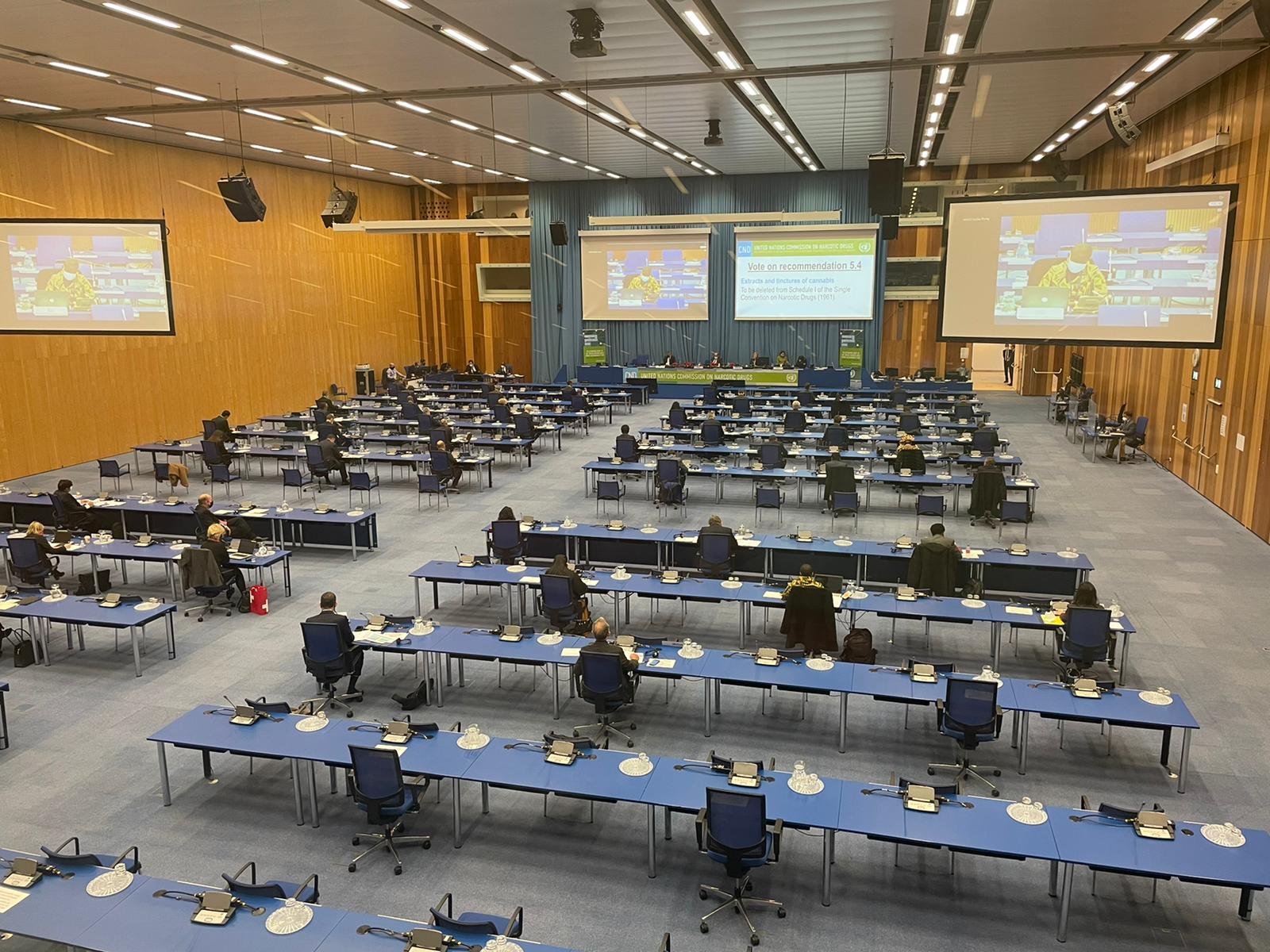

 The formal CND/UNODC statement about this decision is available
The formal CND/UNODC statement about this decision is available 
 The goal is to ensure that laws protect the health and wellbeing of individuals and communities and that they adhere to international human rights standards. Well-designed laws can help build strong health systems; evaluate and approve safe and effective drugs and vaccines; and enforce actions to create healthier and safer public spaces and workplaces.
The goal is to ensure that laws protect the health and wellbeing of individuals and communities and that they adhere to international human rights standards. Well-designed laws can help build strong health systems; evaluate and approve safe and effective drugs and vaccines; and enforce actions to create healthier and safer public spaces and workplaces.

 The International Federation of Red Cross and Red Crescent Partnership on Substance Abuse, co-sponsored by the Government of Italy, UNODC, WHO, in cooperation with the Levenson Foundation, the C4 Recovery Foundation, PTACC and the Villa Maraini Foundation, has launched the Manifesto “Rome Consensus 2.0 towards a humanitarian drug policy” at the 63a CND at UNODC in Vienna.
The International Federation of Red Cross and Red Crescent Partnership on Substance Abuse, co-sponsored by the Government of Italy, UNODC, WHO, in cooperation with the Levenson Foundation, the C4 Recovery Foundation, PTACC and the Villa Maraini Foundation, has launched the Manifesto “Rome Consensus 2.0 towards a humanitarian drug policy” at the 63a CND at UNODC in Vienna.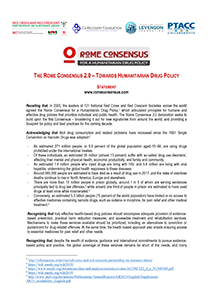 The Rome Consensus 2.0 is available
The Rome Consensus 2.0 is available 
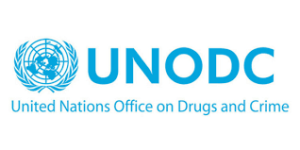 The UNODC Prevention Treatment and Rehabilitation Section (PTRS) in coordination with WHO and UNHCR is planning a consultation process to develop a technical guidance tool to address substance use and substance use disorders, as well as associated health and social consequences in Relief and Humanitarian Settings and to increase access to substance use disorder treatment also in Humanitarian Settings. An expert group meeting is tentatively scheduled for the third quarter of 2020.
The UNODC Prevention Treatment and Rehabilitation Section (PTRS) in coordination with WHO and UNHCR is planning a consultation process to develop a technical guidance tool to address substance use and substance use disorders, as well as associated health and social consequences in Relief and Humanitarian Settings and to increase access to substance use disorder treatment also in Humanitarian Settings. An expert group meeting is tentatively scheduled for the third quarter of 2020.
 The guidelines also makes recommendations about telemedicine, which allows people living in remote locations to obtain health services by using mobile phones, web portals, or other digital tools. WHO points out that this is a valuable complement to face-to-face-interactions, but it cannot replace them entirely. It is also important that consultations are conducted by qualified health workers and that the privacy of individuals’ health information is maintained.
The guidelines also makes recommendations about telemedicine, which allows people living in remote locations to obtain health services by using mobile phones, web portals, or other digital tools. WHO points out that this is a valuable complement to face-to-face-interactions, but it cannot replace them entirely. It is also important that consultations are conducted by qualified health workers and that the privacy of individuals’ health information is maintained.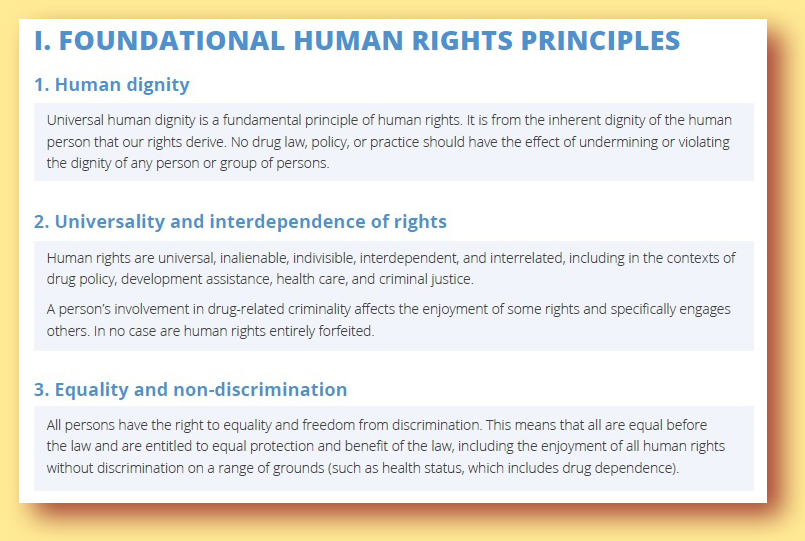
 The Guidelines are not a ‘toolkit’ for a model drug policy. The Guidelines are a reference tool for those working to ensure human rights compliance at local, national, and international levels, be they parliamentarians, diplomats, judges, policy makers, civil society organisations or affected communities.
The Guidelines are not a ‘toolkit’ for a model drug policy. The Guidelines are a reference tool for those working to ensure human rights compliance at local, national, and international levels, be they parliamentarians, diplomats, judges, policy makers, civil society organisations or affected communities.